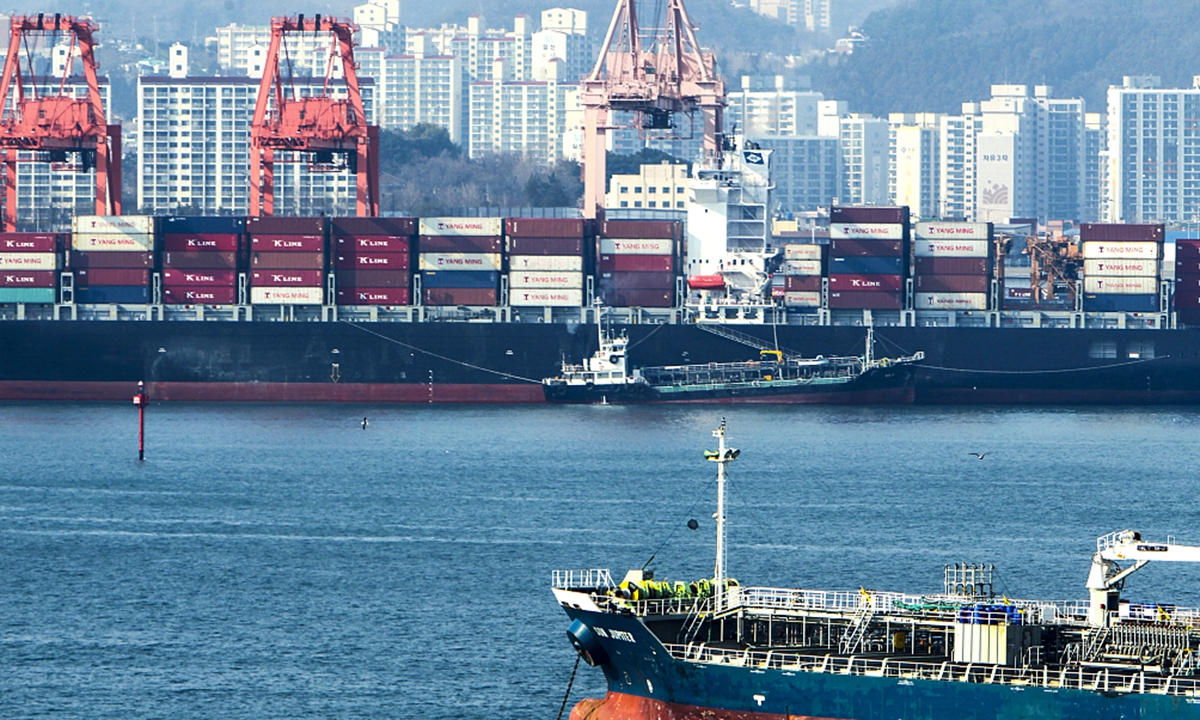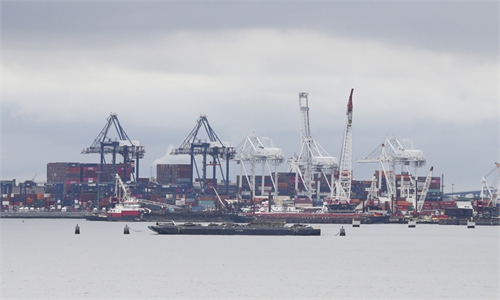Biden calls for patience with China, but lifting tariffs would be an important, much-needed start

export Photo:VCG
Since taking over the White House, US President Joe Biden has kept his focus on pressing domestic issues and reversing a slew of actions taken by his predecessor Donald Trump, which is understandable given the confluence of crises the US faces. But less than a week into his presidency, Biden could no longer avoid questions about the mess left by Trump in China-US trade ties.
At a press briefing on Monday, White House Press Secretary Jen Psaki was clearly overwhelmed by a series of questions from the press – ranging from Biden’s overall approach to China to specific plans on tariffs and Trump’s sanctions on Chinese businesses. Probably not anticipating the line of questioning, Psaki admitted that she “stumbled” and “needed a little more coffee.”
While repeatedly stressing “patience,” Psaki did offer some broad answers and clues to how the Biden administration plans to move forward: Not making any move before conducting an internal review and consulting with Democrats and Republicans in Congress and US allies.
While that may very well sound like a sound decision-making process, as opposed to the erratic behaviors during the Trump presidency, there is a fundamental problem that cannot -- as the extensive questioning at the White House press conference indicated -- be overlooked: the actions of Biden’s predecessor, particularly the hefty tariffs, will continue to damage the US economy, businesses and consumers.
Bottom line: The longer Biden waits the greater the damage, which runs counter to Biden’s overarching plan to save the US economy. Yes, he can blame Trump, but this is on his watch now.
Indeed, the mess left by Trump could take some time to clean up, particularly when it comes to China-US relations, given the raging anti-China sentiment in certain quarters of the US political realm, most notably in the US Congress. However, removing the tariffs should be a relatively easy decision, given the widespread opposition to the punitive duties.
Biden criticized Trump’s trade war during the presidential campaign. He even once suggested he would end the tariffs once elected president, during an interview on August 5, in which he called the tariffs “disastrous” for business and farmers. Biden has since walked back those statements.
US businesses would not only welcome a decision to lift the tariffs, they are likely to pile up pressure on the Biden administration to do so; if they haven’t done so yet. Months before Biden was elected, some 3,500 US companies, including big names such as Tesla Inc and Ford Motor Co, filed lawsuits against the US government over the tariffs, claiming the levies are “unlawful” and seeking compensations.
Most, if not all of the US allies, who Biden said he plans to consult on the tariffs, should applaud a decision to remove them, given many have been targeted by similar tariffs and some even bore the brunt of Trump’s tariffs on Chinese goods. German Chancellor Angela Merkel warned as early as 2018 that Trump’s tariffs on European and Chinese goods threaten global prosperity and may also break WTO rules. A WTO panel has also ruled the tariffs are in violation to international trade rules.
What, then, is preventing Biden from removing them? That’s anyone’s guess. But it may have something to do with “appearing tough” on China, as it seems to be the politically correct thing to do in Washington these days. Quite predictably, if Biden would make such a move, certain anti-China hawks in the US Congress might come out and scrutinize Biden. Some former Trump officials, who have left in disgrace, would almost certainly pump up attempts to crucify Biden.
However, the question for Biden, who has pledged to do everything to rescue the US economy, is this: Is leaving these “disastrous” tariffs (as he called them) in place just to avoid appearing “soft” worth the damage they’re doing to the US economy?
If Biden is serious about reviving the US economy, he would must have some type of engagement with the world’s second-largest economy. Removing remaining US tariffs on Chinese products would be the most reasonable and feasible way to start. That would mostly likely be reciprocated by China lifting tariffs on US products, which were imposed as countermeasures. In the meantime, while Biden remains patient, the damage those tariffs cause will continue to mount.
The author is a reporter with the Global Times. bizopinion@globaltimes.com.cn




